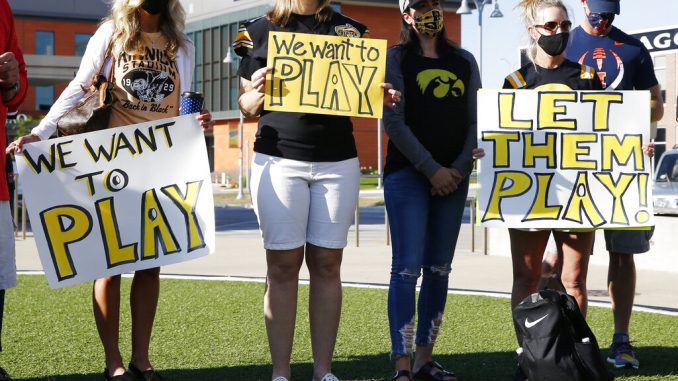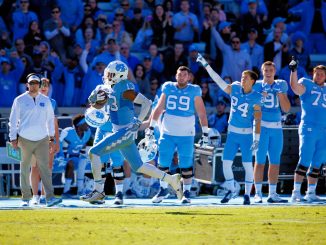
 “This is what happens when God shows up!”
“This is what happens when God shows up!”
These are probably not the words that you would expect to be spoken at a pep rally before one of the biggest high school rivalry football games in the history of the state of Alabama. But this was the rallying cry for the 1974 game between Woodlawn High School and Bank High School that was played before 42,000 fans at Legion Field.
There had been a miraculous conversion of the coaches and high school players on both teams due to the daring ministry of sports chaplain Hank Erwin. Troubled and concerned about the violent racial unrest that was sweeping through Birmingham in protest of school desegregation, Erwin first approached Woodlawn coach Tandy Gerelds and asked to speak to the team about Jesus Christ.
Gerelds was definitely cut from the old cloth of Southern football coaches, a no-nonsense “yes sir, no sir” type of guy. He sized up Erwin, a modest-looking young man who walked with a limp and a cane, and immediately refused, but Erwin was audaciously persistent. Gerelds gave him five minutes, which turned into an hour with almost the entire team coming to the Lord. A black running back named Tony Nathan rose to stardom at Woodlawn, bringing unity to a racially torn community.
I recently watched the 2015 film “Woodlawn,” which documents the true story behind the spirited high school football seasons of 1973 and ‘74 for the team, its coaches and opponents. I began thinking about the nervous uncertainly surrounding football being played at the high school and college levels this fall due to the coronavirus pandemic.
This would be a wonderful time for something to unite players and fans that is much more significant than a quest for a championship. Those who know me well would tell you that I am a football fanatic in the purest form. I hail from Athens, Georgia, home to the SEC powerhouse the Georgia Bulldogs.
As a fifth grader, I followed the glorious era of Herschel Walker, the famed running back who helped lead the Bulldogs to an undefeated 1980 season and national championship over Notre Dame. With nearly 40 years since UGA’s last title in 2017, you can imagine how my heart sank during the College Football Playoff National Championship when the Dawgs lost an overtime nail biter — 26-23 — to Alabama.
Fan disappointment about the Big Ten not playing football this fall has turned into outrage as parents and players are protesting in hopes that conference commissioner Kevin Warren will reverse his decision. This doesn’t appear likely, but tweets from Ohio State players Master Teague and Josh Proctor during the team picture day revealed that they are actually looking at the bigger picture.
Teague, a running back, tweeted the hashtags #RIDEWITCHRIST and #JesusAintCappin. His teammate Proctor, a safety, tweeted, “Leave it in God’s hands ‘cause all of this God’s plan.” For those of you who are not familiar with the hip hop lingo in Teague’s tweet, when you “ride wit” someone, this means you can trust and depend on that person.
A person who’s not “cappin” does not lie or is not a phony. I believe that Teague and Proctor are on a similar path in life to that of Woodlawn’s Tony Nathan, as they have shown great maturity in response to COVID-19’s impact on sports.
While Nathan did not face a pandemic when he was playing, the nasty racial friction he witnessed in Birmingham was just as vicious and callous as what Teague and Proctor’s generation has seen with the nationwide George Floyd protests. Nathan became the face of a spiritual revival that connected people through their passion for football. He realized that giving God glory on the gridiron gave people hope.
What if a Woodlawn-like experience happened at Ohio State and spread throughout college football with players of faith like Teague and Proctor? What if, once the coronavirus has ceased, over 100,000 fans in the Horseshoe were brought together not just by their love for the Buckeyes but their love for Christ?
Wouldn’t it be great if God showed up?
Dr. Jessica A. Johnson is a lecturer in the English department at Ohio State University’s Lima campus.



